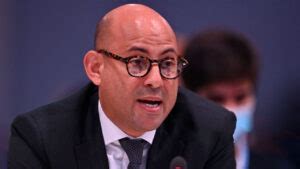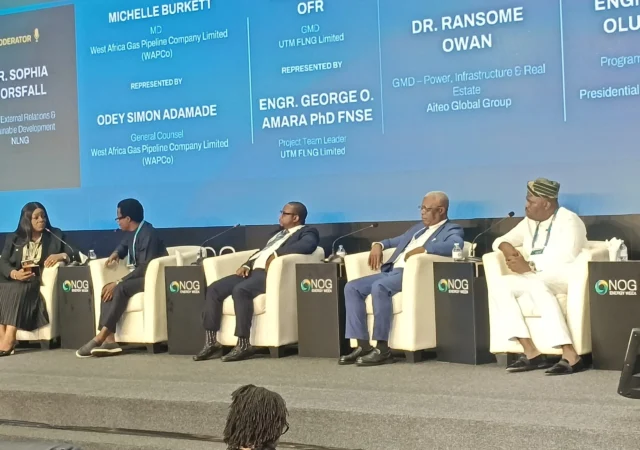Bolder Climate Action: The Only Pathway for Nations to Survive and Thrive
At a recent virtual event hosted by the Brookings Institution’s Global Economy and Development Programme, Simon Stiell, the UNFCCC Executive Secretary, wrapped up his presentation by affirming that only bold climate action solutions will provide the only pathway for nations to survive and thrive.
He stated this after addressing the urgent issue of climate finance; the current state of financing, the direction needed, and the necessary actions to mobilize funds across all sectors and economies.
Current State of Climate Finance
Stiell began by highlighting the significant progress made over the past decade. He noted that global investments in climate action exceeded one trillion dollars last year, a remarkable increase from a few hundred billion just ten years ago. According to the OECD, developed countries provided and mobilized over $100 billion in climate finance for developing nations in 2022. This progress, he emphasized, was largely due to proactive governments that recognized the opportunity for impactful investment.
However, despite this progress, Stiell cautioned that it was far from sufficient. He pointed out that the past year has seen devastating climate impacts, costing nations—both rich and poor—hundreds of billions of dollars. Hurricanes Milton and Helene had caused widespread destruction, while the recent effects of Hurricane Beryl were felt acutely on his home island of Carriacou. He observed that even those who avoided direct damage faced severe inflation due to disrupted supply chains.
The Urgent Need for Comprehensive Action
Stiell warns against the growing disparity in access to clean energy solutions, stating that a two-speed global transition was unsustainable. He insists that the climate crisis could not be allowed to devastate economies, including the largest ones, without providing all nations with the resources needed to reduce greenhouse gas emissions and enhance climate resilience.
To address this, he argued that trillions more in climate finance were essential. This investment was not merely an expense; it was a crucial measure to protect the global economy from the escalating climate crisis, which would ultimately incur far greater costs for all nations involved.
Scaling Up International Climate Finance
Looking forward, Stiell emphasized the need for international climate finance to scale up significantly. With the World Bank Annual Meetings approaching, he recognized a critical opportunity to catalyze change. He noted that Multilateral Development Banks (MDBs) would play a key role in this transition, as illustrated by the World Bank’s recent announcement of increased concessional lending for climate initiatives.
Yet, he warns that incremental improvements would not be enough. A radical increase in investment was necessary to prevent economic failure worldwide. Many countries face debt crises that hinders their ability to invest in climate action.
Stiell called for strong commitments from the World Bank and IMF at the Annual Meetings, urging them to ensure that developing nations had access to necessary funds and fiscal space for climate initiatives, rather than being burdened by crippling debt.
A Call for Collective Responsibility
Stiell emphasized that the responsibility did not rest solely on development banks. The G20, as their largest shareholders, needed to ensure adequate funding and push for essential reforms in the international financial architecture. Under Brazil’s G20 leadership, the collaboration between climate and finance ministers was crucial and should lead to concrete outcomes.
He remarked that progress in climate finance could facilitate breakthroughs in negotiations and vice versa, warning that failure on either front risked undermining critical aspects of the Paris Agreement.
The Path Forward
As COP29 in Baku approaches, Stiell urges all governments to agree on a new international climate finance goal that genuinely addressed the needs of developing countries. He called for this meeting to be a decisive moment, recognizing that climate finance was integral to safeguarding the global economy and protecting millions from climate impacts.
While he refrained from speculating on the specifics of the new goal, he asserted that public finance must be central to the discussion. Stiell stressed the importance of making financing available as grants or concessional loans and ensuring accessibility for those most in need.
Moreover, he emphasized the need to leverage private finance and signal to financial markets that green investments were beneficial. Establishing mechanisms to track and guarantee the delivery of promised funds, rapidly increasing adaptation funding, and ensuring international carbon markets worked for everyone were also critical points he raised.
Stiell concluded by calling for a renewed commitment to a new generation of national climate plans that built on the progress achieved at COP28, translating pledges into tangible real-world results.
In these challenging times, he stated his recognition of the temptation to retreat into self-interest, but cautioned that this mindset would lead to disaster in the fight against climate change. Rather, he urges a collective choice to embrace a path that recognizes the mutual benefits of robust climate finance—a path that prioritizes solutions yielding stronger growth, more jobs, improved health, and secure access to clean energy for all.
For Stiell, this is the only way forward for nations to not only survive but thrive in the face of the climate crisis. He therefore called on everyone to commit to bolder climate action that would benefit all corners of the globe.







